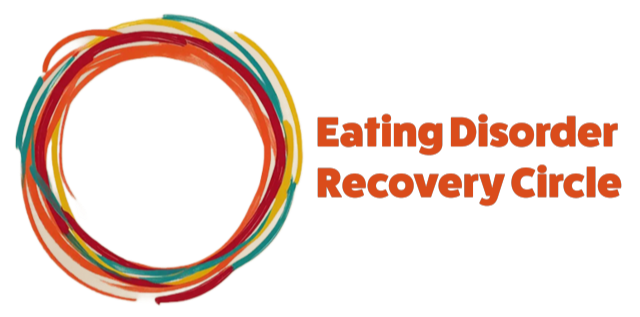How to Stop Compensating for Food (Exercise, Restriction, etc.)
Mar 08, 2025Compensating for food—whether through restriction, over-exercising, purging, or other behaviours—is one of the most deeply ingrained patterns in an eating disorder. It creates the illusion of control but actually traps you in fear, guilt, and exhaustion.
The only way to stop compensating is to break the cycle repeatedly until your brain learns that nothing bad happens when you don’t compensate.
If you’re feeling panic, guilt, or fear around letting go of compensation, check the Feelings Navigator for tools to process these emotions. If fear of weight gain is driving the urge to compensate, the Fear of Weight Gain Course inside The Circle can help you work through it.
Step 1: Identify How You Compensate
Compensation takes many forms. To stop, you first need to recognise your own patterns.
🔹 Restricting after eating (skipping meals, eating less next time)
🔹 Over-exercising (working out to ‘burn off’ food, ignoring hunger after exercise)
🔹 Purging (self-induced vomiting, laxatives, diuretics)
🔹 Fasting or delaying meals (“waiting until I feel really hungry”)
🔹 Only eating ‘safe’ foods (choosing lower-calorie options to compensate for a bigger meal earlier)
💡 Ask yourself: What do I do after eating that makes me feel ‘safe’?
- Do I tell myself I’ll eat less tomorrow?
- Do I exercise to “make up for it”?
- Do I feel the urge to restrict certain foods next time?
Once you’ve identified your patterns, you can actively challenge them.
Step 2: Break the Compensation Cycle—One Step at a Time
Stopping compensation isn’t about willpower—it’s about exposure and repetition.
The key is to break the cycle in small, intentional ways, over and over again.
💡 How to start:
👉 If you restrict after eating…
🔹 Eat your next meal normally, even if you don’t feel hungry yet.
🔹 If you’re afraid of eating the same amount again, remind yourself: Your body doesn’t need less food today. It needs consistent nourishment.
👉 If you over-exercise…
🔹 Skip one compensatory workout or reduce intensity and notice that nothing bad happens.
🔹 Remind yourself: Food is not a debt to be repaid. Your body needs energy for living, not just exercise.
👉 If you only eat ‘safe’ foods after a big meal…
🔹 Challenge yourself to eat a regular meal without making it lower-calorie or ‘lighter’.
🔹 Ask: Would I let a child eat less tomorrow just because they had cake today? If not, why is it different for you?
The first time will feel uncomfortable. That’s okay. The more you repeat it, the easier it gets.
Step 3: Challenge the Belief That Compensation Is Necessary
Your brain has learned that compensating = safety. To unlearn this, you need to prove to yourself that not compensating = nothing bad happens.
Ask yourself:
❌ Has compensation ever made me happy?
❌ Has it ever made me feel at peace with food and my body?
❌ Do people who don’t compensate suffer because of it?
If the answer is no, then compensation is a false sense of control, not actual safety.
💡 Reframe the fear:
🚫 Instead of: “I have to burn this off.”
✅ Try: “My body already knows what to do with this energy.”
🚫 Instead of: “I can’t eat again after this.”
✅ Try: “My body needs food at regular intervals, no matter what I ate earlier.”
Step 4: Repeat, Repeat, Repeat—Until It Feels Normal
✅ Make it a practice. Every time you eat, commit to NOT compensating in at least one way.
✅ Track your wins. Keep a record of meals where you didn’t compensate—and how nothing bad happened.
✅ Expect discomfort—but know it fades. The more you practice, the more your brain learns that you’re safe without compensating.
💡 If you relapse into compensatory behaviours, that’s okay. The goal is not perfection—it’s persistence. Keep challenging it.
Step 5: Address Fear of Weight Gain & Body Image Concerns
For many, the urge to compensate is tied to fear of weight gain. If this is holding you back, check:
🔹 The Fear of Weight Gain Course in The Circle—it’s designed to help you reframe this fear and move forward.
🔹 The Feelings Navigator—use it to process anxiety, guilt, and loss of control.
💡 Weight does not need micromanaging. Your body is not a math equation—it knows how to stabilise when fully nourished.
When to Seek Extra Support
If stopping compensation feels impossible or triggers distress, reach out in The Circle. Others have been where you are and can support you through it.
Next Steps
🎯 If this brought up guilt or fear, visit the Feelings Navigator to explore “fear” and “guilt” tools.
🎯 If you struggle with letting go of food rules, read “How to Challenge Food Rules.”
🎯 Join The Circle discussions—talking about this with others can make all the difference.
Final Reminder
Compensating for food is not fixing anything—it’s keeping you stuck. The more you break the cycle, the freer you become. Not just once, but over and over, until you forget why you ever felt the need to compensate in the first place. ❤️

